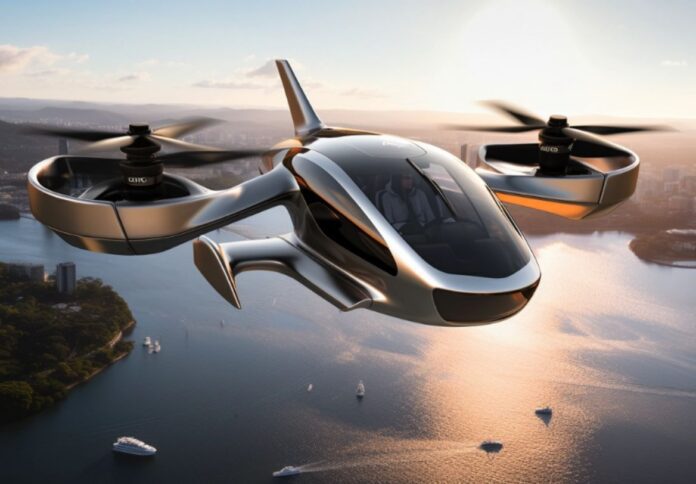
Artificial intelligence could play a massive role in establishing Australia as a global aviation leader, according to an expert from the Swinburne University of Technology.
Thomas Luke, PhD candidate at Swinburne University of Technology’s Aerostructures Innovation Research (AIR) Hub, emphasised that AI should be a crucial consideration in the aviation industry’s transformation with its potential to accelerate sovereign projects in the sector.
With present issues that plague the aviation industry in a post-pandemic setting, Luke is investigating how artificial intelligence can help create new aircraft designs that meet modern demands and help alleviate these concerns.
“We’re on the precipice of a big transition, with new modes of air transportation scheduled for introduction across the world as soon as 2025,” Luke said.
Thomas is investigating how AI can be used in the conceptual design phase using text-to-image generators and has developed new concepts that could be adapted by industry to make innovative new craft.
His designs are created within 20 seconds– a stark contrast to traditional illustration and concept renderings, which can take days and valuable resources to produce.
“This new horizon of aerospace known as Advanced Air Mobility (AAM) demands a different approach,” Luke said.
“Small aircraft that are super functional and are achievable to fast track into the industry for public use, designed with a user-centred vision.”
Equipped with AI, AAM also offers a glimpse into the future of electric vertical takeoff and landing (eVTOL) vehicles that are expected to play a pivotal role in AAM and the future of aviation.
“AAM represents a significant evolution in aviation,” said Luke. “It envisions the future of air transportation, embracing modern technologies, materials, processes, user experience and innovative thinking to solve complex problems. AAM and its unique air vehicles will also encounter new challenges; this makes it an opportune moment to weave AI into the fabric of this emerging industry from the ground up.”
Generative AI also has the potential to address existing issues in the aviation sector and provide insights into how the industry can evolve and improve.
Luke noted that GenAI serves as an invaluable co-author that can help professionals enhance their work.
“This allows for re-examining existing challenges with fresh perspectives and tackling new tasks more innovatively than traditional approaches,” the expert noted.
“AI tools offer a vision of the future where exploring a broader range of solutions becomes more efficient and accelerates our progress so that Australia becomes an aviation leader worldwide.”




















